I have been in education for nearly 35 years and a college counselor for 25 years working at three different independent schools, and one of the most important things I have learned is mentorship matters. Studies have shown that one of the biggest contributors to the long term success of many students is that someone has taken the time to advise and/or mentor them at different stages of life.
There are three specific instances I explicitly remember being mentored. In retrospect, it just seemed like a moment in time…as when my 5th teacher, a fair-skinned African American woman, was simply providing me extra assistance with my penmanship. You see, students earning an “A” in penmanship got their handwriting assignments displayed on Mrs. Shives’ board. Today, this incentive might be seen as exclusionary, but it was motivating to me at the time.
Though I was earning a B- in penmanship on a consistent basis, I dreamt of having my paper displayed on Mrs. Shives’ handwriting honor board. I asked her if I could stay after school to work on my cursive handwriting. No questions asked, she worked with me day after day improving my handwriting with each session.
When I learned she lived only three blocks from my home, I asked my parents if she could work with me on weekends, and she agreed. She was always encouraging! She showed me little tips to improve my writing and, most importantly, she was extremely patient with me. By year's end, I earned an A+ in penmanship and got my paper displayed on the wall. Today, I realize it was mentoring! A mentor invests in someone else's success, wanting nothing in return. I felt inspired and really took pride in my penmanship, and I stayed in touch with Mrs. Shives for years afterwards.
As a sophomore in high school, I joined the track team and was a total flop in the 100 and 200 meters. Most African American kids in the inner city (Gary, IN) thought they were born to sprint and avoided long distance events; however, the coach kept encouraging me to try the 400 and 800 meters. I had immediate success and made the varsity team by outdoor track season. But I had one problem - I couldn't crack the mile relay team lineup, the marquee track and field event. Not making the relay left me flustered, as I hoped to be selected for the prestigious Mayor Hatcher Youth Foundation Track Team (historical fact Mayor Richard Gordon Hatcher was the second African-American Mayor elected in the United States). Needless to say, I was not selected, leaving me extremely disappointed, yearning even more to prove myself.
This unfortunate result led me to compete for the Steel City Striders, a team open to anyone from ages 8-18 to join. The Striders had a committed coaching staff, and one coach in particular took significant interest in me and my development as a runner. His name was Coach Arnold Price, a middle aged African American man with a calm demeanor and an assistant football and track coach at the rival crosstown high school. He and I wrote workouts together, he timed me at every practice, he pushed me mentally and physically, he drove me to track meets on weekends, and he encouraged my development throughout the long hot summer.
To make a long story short, because of Coach Price's care and commitment, I finished 3rd in the 1983 AAU Junior Olympics 800 meters, hosted at the University of Notre Dame. The coach from my rival high school didn't care what school I attended; he cared about me and my pursuit to improve as a runner. A good mentor does their part to help you find what you can't find in yourself. Because of his belief in my abilities and mentorship, I went on to become one the best 400 meter runners in the entire United States by the end of my senior year, earning a full track scholarship to The Ohio State University, winning two individual Big Ten titles at 600 meters and being named team captain in 1988.
The last story was my sophomore year of college when I was lost trying to decide on a college major. I made an appointment with an advisor in the College of Social Work because I knew I wanted to help people but, like most young people I also wanted to earn a lot of money, and everyone knows Social Workers don't command top salaries.
On the day of my appointment, I met a gentleman named John Hamilton, a tall white male resembling Michael Gross on Family Ties. He had good energy, explained the entry requirements, and told me I needed to earn a 3.3 for the semester to be admitted to the College of Social Work. It was the first time in college that I had a goal and clear direction for what was next. Remember, this was before email and the internet, so he scheduled me to come to see him every two weeks to check on my grades and to help shape my personal goals, and he even wanted updates on my weekly track meets. John believed in me! John encouraged me! For the next two years, John looked out for me, even offering me a job at the College of Social Work so I had income over summer, all while inspiring me to pursue graduate school. A good mentor sees things in you that you may not yet see in yourself. When I got married a month after graduation, John and his wife attended my wedding. Mentorship knows no color but rather sees the good and the goals of those students they are shepherding.
Today, I serve as Director of College Counseling at Greensboro Day School and love my work. I give my all to shepherding and mentoring my students and their families in the college process. Mentorship is heart work. I am proud of the fact that I still have relationships with many of the students I recruited as a college admissions officer in the 1990s. Now, many of the hundreds of students I’ve placed in colleges through my career still stay in contact with me today. Without Mrs. Shives, Coach Price, nor John Hamilton, I would not be the person, mentor, or professional I am today. Good Mentorship Matters!
By Keeon Gregory
Director of College Counseling
Greensboro Day School



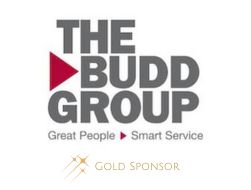





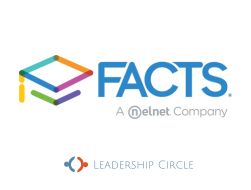
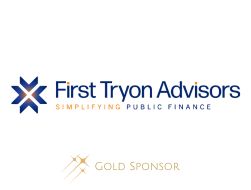
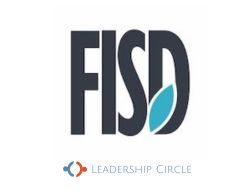

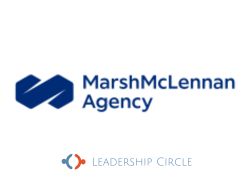








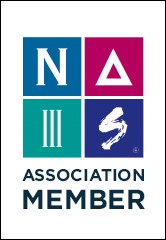 .
. 
